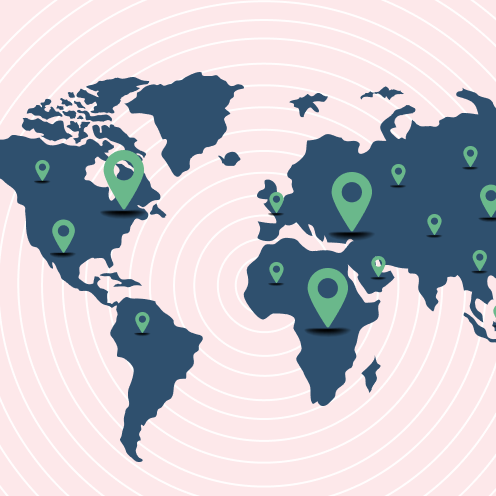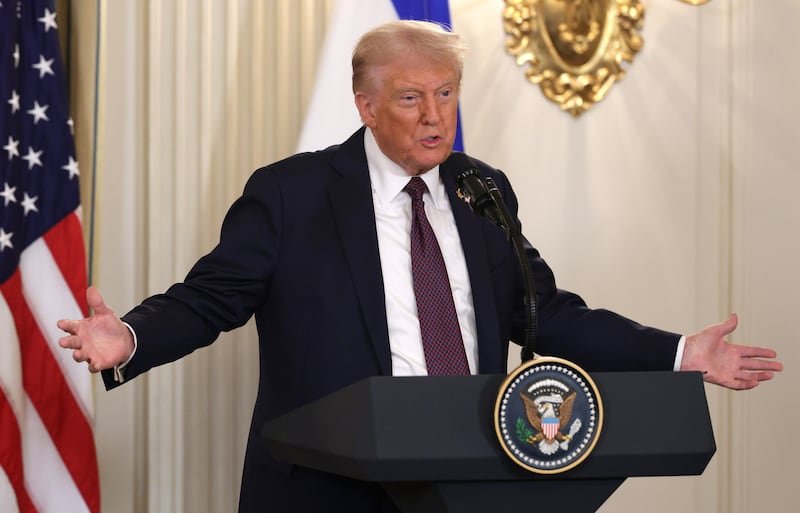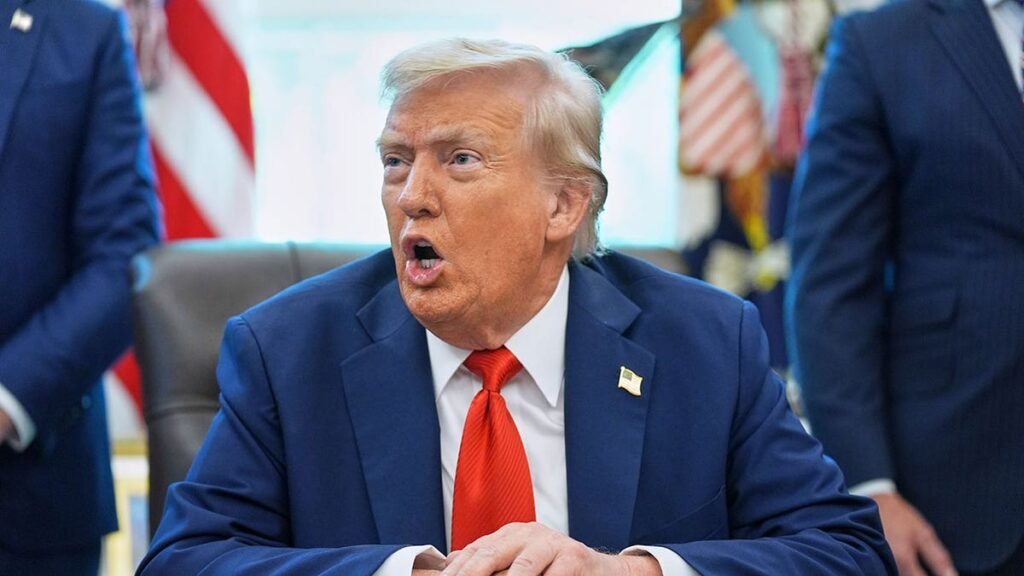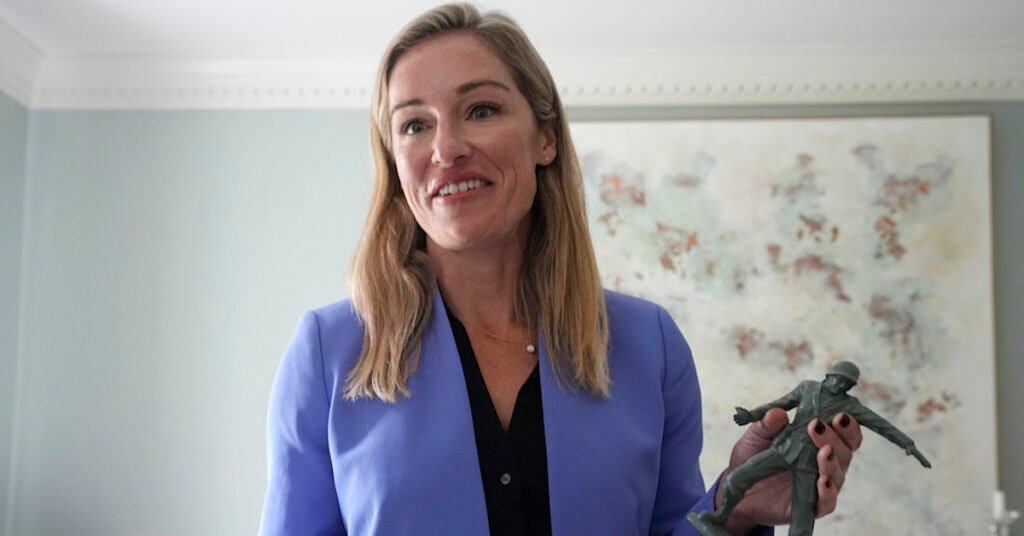Umm al-Khair, occupied West Bank – Every time Yinon Levi returns to Umm al-Khair, where videos and witness testimonies implicate him in the murder of Awdah Hathaleen, anger stirs within the community.
Seeking to prevent further arrests or violence, village leaders urge people to hide in their homes.
Recommended Stories
list of 3 itemsend of list
But Levi’s appearance leaves villagers, who have long faced home demolitions by Israeli authorities and attacks from Israeli settlers that have intensified since the war in Gaza started, afraid and seething.
Tariq Hathaleen, 31, is a community leader whose eyes are still bloodshot and glossy in grief over his best friend’s murder two months ago.
“Seeing [Levi] makes me sick,” he said with disgust. “Really, it makes me deeply sick.”
A violent settler
The residents of Umm al-Khair are a Bedouin shepherding community who were expelled from the Naqab Desert during the Nakba, when Zionist gangs ethnically cleansed hundreds of Palestinian villages to make way for the declaration of the state of Israel in 1948.
The community fled north to the South Hebron Hills, in the southern occupied West Bank, where they bought land to establish a new home across the arid land in clusters of buildings interspersed with wide grazing lands for their livestock.
In 1980, a hilltop was seized from Umm al-Khair. In its place the illegal Israeli settlement of al-Karmil, also known as Carmel, was built, looming over Umm al-Khair, especially its northernmost cluster, where Levi and other settlers are now focusing their attention.
Levi is a notorious Israeli settler sanctioned by the European Union and several governments for violent attacks on Palestinian communities in the South Hebron Hills, including spearheading the expulsion of Palestinians from Khirbet Zanuta village.
He runs an earthworks company that for years has facilitated setting up settler outposts – small, illegal clusters of caravans or tents settlers put on Palestinian land in hopes of getting Israeli government approval to remain. These outposts are illegal even under Israeli law.
He has also been hired by the Israeli Civil Administration to demolish Palestinian homes in Area C – the 60 percent of the West Bank under full Israeli control – where Palestinians seldom get building permits.
In February, settlers from al-Karmil came just south of that northernmost cluster of Umm al-Khair, where the community centre and playing fields are for the whole village, and planted an Israeli flag and olive trees there, staying close to a settler highway at first.
Later, settlers came to measure a strip running from their flag westwards, to see how many settler caravans they could fit in a line hemming in the Palestinian homes and the village community centre.
To make this feasible, they turned to the sanctioned settler, Levi, asking him to level the land on which they wanted to place outpost caravans.

Trapped
The community centre cluster of Umm al-Khair is already bisected by a settler road leading from the illegal settlement of al-Karmil, north of the strip they chose for caravans.
To extend the landgrab, Levi and the settlers wanted to build a shorter connection between the road and the strip of caravans, an access point closer to the gates of the illegal settlement.
But that road would run right through a patch of private Palestinian land in the village, which villagers had recently planted with olive trees.
The villagers erected a fence around their land several times to prevent settler incursions, and an Israeli court upheld their right to have it there. Still, settlers would violently demolish the fence.
The day Awdah was shot dead, July 28, an excavator owned and operated by Levi attempted to plough through this private Palestinian land.
As villagers tried to stop the excavator, with some throwing rocks, Levi came out of the machine and fired twice into the crowd of villagers, among them women and children.
One bullet struck Awdah, who filmed his own death, in the chest.
Levi was released to house arrest by the police the same day. Three days later, an Israeli judge released him from house arrest, agreeing with Levi’s claims that he was acting in self-defence.
Just days after he shot Awdah, Levi was back in the village.
“To see the murderer of your most beloved person in this life return again and again, and yet you’re not allowed even to say a word … it makes me sick,” said Tariq.
“It would be the smallest right in this unlawful, unjust legal system that they ban him from here, but instead they let his company continue working”.
Since the killing of Awdah – a leader who was pivotal in fostering deep ties between the community and global supporters and solidarity activists – Levi has returned at least six times to the village, according to villagers, excavating and landscaping to prepare for settler caravans in Umm al-Khair.
‘Anything he can to provoke you’
Over three separate nights in late August and the first half of September, seven settler caravans were transferred to the area cleared by Levi.
He returned with his construction equipment on September 14 to hook the caravans up to water and electricity lines. While doing so, he was caught on camera using his excavator to destroy the village’s water and electricity lines. Levi emerged from the excavator at the end, jubilant.
“He doesn’t only come here again,” said Tariq. “He comes and smiles at you, laughs at you, [does] anything he can to provoke you.”

“Nothing happens with the settlers randomly or suddenly – it’s something well-planned for,” he continued.
“They send [Levi] and they insist on sending him back again and again. They want to provoke us, for one of the community members to do something.”
The villagers were left without water or power for four days, at which point contractors hired by the village were able to complete the work, harassed and under duress the whole time.
“No water for the goats, no water for us, no lights or cameras to watch for settlers,” recalled Khalil Hathaleen, 39, a member of the village council and Awdah’s brother.
During those four dark nights, the settlers’ usual tactics of blaring loud music and flashing spotlights at the village seemed exceptionally terrifying.
“We didn’t sleep for four days,” said Khalil.
As barefoot Palestinian children play football on a dirt field, settlers descend from a truck metres away to bring supplies to the newly installed caravans. Young settler families tour the caravans, debating whether to move in.
Population transfer of an occupier’s population into occupied lands is prohibited by the Geneva Conventions. While Israeli law prohibits settler outposts in the West Bank, the construction and population of these unauthorised outposts are being overseen and protected by al-Karmil’s guard, as soldiers look on.

Umm al-Khair, a sprawling Bedouin community, has long faced movement restrictions, attacks on people’s homes, and seizure of village lands by Israeli authorities and settlers from al-Karmil, including settler shepherds who graze on village lands where the villagers’ own sheep can no longer go.
Now, the people of Umm al-Khair fear these new outposts will threaten the safety and integrity of the community even more, following similar troubling trends across the West Bank that threaten even the strongest of Palestinian communities in Area C.
“If the settlers move into these caravans, they will separate the sides of the village,” explained Khalil, referring to a cluster of houses to the south, beyond an expanse of grazing land.
“My wife is from the south side of the village. In the future, maybe [we] cannot go to the south side of Umm al-Khair and see them. We will be cut off.”
The menace that is Shimon Attiya
The villagers can see that settlers operate with impunity, even when apparently violating Israeli law or court orders. Like Shimon Attiya, a settler and a major aggressor against the Umm al-Khair community.
An Israeli court prohibited Attiya this summer from coming within 50 metres (164 feet) of a family’s home after he allegedly harassed and attacked the family repeatedly.
But Attiya returned, repeatedly violating the court order and harassing other families, villagers told Al Jazeera.
He was within 50 metres of the family’s home to harass contractors the villagers had secured permission to bring in and fix the water and electric lines after Levi severed them, preventing them from doing their work.
The day after, the military again obeyed the settlers, despite the permits the village had, declaring the area a closed military zone. It took four days and three attempts to complete the work.
“They’re never held accountable – ever – just because they are settlers, and they have a privilege to have guns, shoot anytime they want, and there’s no accountability for Palestinians if they’re killed,” said Eid Hathaleen, 41, another community leader.
“Instead, this government just supports them with guns, funding, power and legal protection.”
‘The victim pays the price’
On top of the lack of accountability for Awdah’s murder, the villagers found themselves targeted by an occupying army, following orders from the accused killer.
Right after he killed Awdah, Levi brought Israeli soldiers to identify nearly a dozen Palestinians he claimed had attacked him when he shot Awdah.
These men, including Eid and Tariq, were taken to the notorious Ofer Prison. Most of them spent 11 days there without charge, cuffed, shackled and blindfolded, with prison guards beating them, Eid says.

“The victim pays the price, while the killer is just free to go,” said Eid.
And yet, Khalil insists that Umm al-Khair’s spirit does not waver.
“After my brother [was killed] … all the community promised together, we will be staying in the land. The murder of Awdah has not broken the people,” said Khalil. “We know what Awdah would want.”
“I prefer to die in my land than for us to become refugees again,” he said.
Yet, village leaders like Eid continue to preach the tenets that have brought worldwide fame to this resilient community of approximately 300 people.
“We told them before [Awdah’s murder] and also after: we need to stay peaceful, to stay non-violent,” said Eid. “And to keep hope … this is the way we survive.”
But as the signs in the village demanding “Justice for Odeh [another spelling of Awdah]” go unheeded, some like Tariq grow fatalistic.
“After the killing of Hajj Suleiman and now Awdah, we all expect to lose our lives,” said Tariq. “If settler Yinon Levi was punished by the system for the killing of Awdah, this very beloved person, others would not dare to shoot and kill and murder people.
“But instead, what happened to him is encouraging the settlers to continue killing Palestinians and get away with it.”







